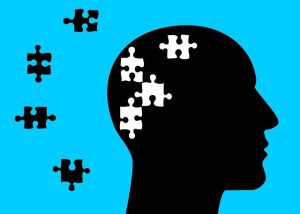In her book Sleeping Beauties, neurologist Suzanne O’Sullivan explores the phenomenon of culture-bound illnesses around the world. The conditions she is interested in are psychosomatic disorders which arise due to a complex interaction between the mind and body, but also the cultural context in which an individual finds themselves. And since language is essential both for communicating symptoms and internalising information that could provoke a psychological or physical response, there is much to intrigue the linguist in this book.
O’Sullivan begins with the mysterious and heartbreaking case of the hundreds of children of refugee families in Sweden, who have fallen into a sleep-like state, sometimes for months or even years. The common factor which seems to unite these sleeping children is years of stress and anxiety, living in a country from which you may be banished at any point. O’Sullivan is also quick to understand how the children often act as a linguistic conduit for their parents while the protracted asylum process runs its course. If and when bad news is received “the children are the ones who open the letters.”
A recurrent theme in the book is the question of who gets to define what is and what isn’t an illness. Having taken a tour from the sleeping refugee children in Sweden, to the victims of ‘Havana syndrome’ in Cuba, to the mystery sickness afflicting a town in Kazakhstan, O’Sullivan sets about scrutinising the Western medical model that her readers will be most familiar with. She describes the importance we place on naming and labelling symptoms, pointing out how keen people are “to get a disease label that will earn them the help and respect they are asking for”.
Grouping and then attributing labels to symptoms is a branch of medical science in its own right. Nosology tackles the classification of diseases, and should involve some understanding of the cause or origin of the complaint, while nosography focuses primarily on applying a label to a symptom. The problem, as O’Sullivan put it, is that “the body offers an ever-present potential symptom pool. There are numerous reasons why someone might start to pay undue attention to their body and, out of the white noise, pull one sensation to the fore, starting a medical hunt.”
We place immense faith in the labelled entities that our particular culture has defined as an illness, but are quick to spot the cultural influences that have shaped symptom classification elsewhere. Notably, the previous version of the US Diagnostic and Statistical Manual of Mental Disorders (DSM), “only specifically names culture-bound syndromes belonging to communities that do not have English as their first language”. The more recent DSM-V attempts a more nuanced approach to account for the fact that “different cultures and communities exhibit or explain symptoms in various ways.”
The fact remains that a diagnostic label such as jambes lourdes (heavy legs) — which afflicts a disproportionate number of French people while being virtually unknown elsewhere in Europe — “would not be referred to as a folk illness or culture-bound syndrome in France, because these are terms more often used to label people outside of one’s own cultural community.” O’Sullivan’s message is that the label itself has the power to fuel illness, “the embodiment of illness labels by the classification effect makes new people, and, if the label is powerful enough, it will make new disabled people.”
About the Author
Alison Tunley
Alison is a seasoned freelance translator with over 15 years of experience, specialising in translating from German to English. Originally from Wales, she has been a Londoner for some time, and she holds a PhD in Phonetics and an MPhil in Linguistics from the University of Cambridge, where she also completed her First Class BA degree in German and Spanish… Read Full Bio
Image: Pixabay








